|
At Humanities Amped in 2021, we are celebrating the first of our three core values: beloved community. As we look toward the future and its challenges, this aspect of our organizational vision, to nurture a dynamic, beloved community of lifelong learners and civic leaders, has never felt more essential to our individual and collective well-being. Over the next few months, we will release a series of think pieces reflecting on the theme of beloved community and how it shows up in our work at Humanities Amped. Click here to learn more about the heart of beloved community and why it matters so deeply to us. Our second beloved community reflection is from Asia Reese, Humanities Amped Community Educator, Program Manager, and Serve LA corps member.
Reclaiming Black Pasts, Creating Black FuturesAsia ReeseI went to school in "The Bottom" at a high school initially named Hickory Street School, later renamed The Baton Rouge Colored High School, but you most likely know it as McKinley Senior High School. I am an alumna of a predominantly Black school system and the state's first high school open for Black people, yet I only remember ever talking about Black History once every school year. The conversation, when we did have it, focused solely on a heavily sanitized story about our Civil Rights Elders: always teaching us their sacrifices, but rarely did we hear their critiques--especially the ones they made towards the end of their lives.
With that erasure, dissatisfaction and disinterest began to grow. As someone who always loved school, I began to grow skeptical of its purpose if it did not aim to culturally affirm the primary population that it served. This dissatisfaction is why I think many students may leave the state, as I did, in search of knowledge--and more importantly--Beloved Community. Beloved Community is only created when the space you are in is dedicated to acknowledging the full extent of your existence: your multiple identities, your past, present, and helping you create your future.
Coming off the high from BlackFutures: A Sankofa Series, my favorite part was and will always be the student engagement. From their questions, art submissions, songs, and drama performances it felt beautiful to provide an opportunity for them to learn and reflect on their history, our city's shared history and showcase their talent. However, I think the embodiment of Sankofa--reaching back to retrieve what is at risk of being left behind--came from our intergenerational conversations. Listening to revered community elder Maxine Crump ask the change-agent Myra Richardson what inspired her to get involved made me reflect on my own "How did I get here?" journey. Hearing the legendary Dr. Press Robinson ask young organizer Anthony Kenney what activism means to him felt like a question to all the youth. And, in the spirit of Beloved Community, it simultaneously provided an affirmation and call to action. It recognized our potential to change the world and forced us to consider who we are when we are creating our Black future. Now we have set the stage for another goal. We have expanded the Black History Month narrative to reflect a localized community truth through powerful oral histories and storytelling. Still, we must push for the account that reflects many students' lived reality to not be denied to them in their classrooms every other academic school day of the year. We acknowledge the influence of the Spanish and the French. Indeed, we can make space to honor the blood, sweat, tears, and culture created by the slave and their descendants despite white supremacy. We can teach our students that slavery is not Black people's shame but our nation's unaddressed violence. I truly believe once students' history becomes accessible and an intentional part of the school curriculum, we will empower young people to see the full extent of their humanity and heal a wound that has existed since before any of us reading this were born. BlackFutures: A Sankofa Series Black History Month Program
0 Comments
At Humanities Amped in 2021, we are celebrating the first of our three core values: beloved community. As we look toward the future and its challenges, this aspect of our organizational vision, to nurture a dynamic, beloved community of lifelong learners and civic leaders, has never felt more essential to our individual and collective well-being. Over the next few months, we will release a series of think pieces reflecting on the theme of beloved community and how it shows up in our work at Humanities Amped. 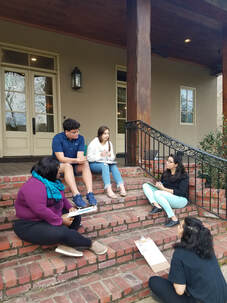 Beloved community is a notion that came into circulation during the Civil Rights movement. Dr. Martin Luther King is well-known for summoning the image of a Beloved Community, not only as a destination, but as the means of reaching that end. For Dr. King and the many others who laid the foundation of this concept, beloved community meant the practice of looking for the best in one another by calling up and nurturing our best human possibility. These civil rights elders believed that a love for one another is not only good in itself, but it is also a way to summon the strength and imagination and create our best collective futures. The late Detroit-based philosopher and organizer Grace Lee Boggs, explains Dr. King’s vision of beloved community. To name the forces working against beloved community, she reminds us of King’s words, “When machines and computers, profit motives and property rights are considered more important than people, the giant triplets of racism, materialism, and militarism are incapable of being conquered.” And then she interprets King’s vision of beloved community: Instead, King had a vision of people at the grassroots and community level participating in creating new values, truths, relationships, and infrastructures as the foundation for a new society. He called for programs that would involve young people in “self-transforming and structure-transforming” direct actions “in our dying cities.” He called for a radical revolution in values and a new social system.
As we practice doing youth work with the intention to change the world, we draw inspiration from the model set by Grace Lee Boggs. She created dynamic intergenerational spaces in Detroit through which young people could find meaningfulness and a sense of self as “solutionaries” by applying their creative energies to confronting the critical problems they identified. Her thinking has greatly influenced our work. But perhaps most importantly, Grace Lee Boggs, like Dr. King, encouraged us to live the questions in an intergenerational way, to see ourselves in a process of unfolding with an emphasis on humanizing our institutions through critical connectedness. In the spirit of these civil rights movement leaders before us, we look forward to living our questions and reflections out loud with you over the next few months as we take a dive into the theme of beloved community.
We hope you’ll stay posted on our website as these think pieces from Humanities Amped staff roll out! Click below to start reading. At Humanities Amped in 2021, we are celebrating the first of our three core values: beloved community. As we look toward the future and its challenges, this aspect of our organizational vision, to nurture a dynamic, beloved community of lifelong learners and civic leaders, has never felt more essential to our individual and collective well-being. Over the next few months, we will release a series of think pieces reflecting on the theme of beloved community and how it shows up in our work at Humanities Amped. Click here to learn more about the heart of beloved community and why it matters so deeply to us.
#CultureOverEverythingmarcel williamsMy first performance in front of a huge crowd was February 1998 at Mt. Zion Baptist Church, where I performed at the city's Black History program. I was oh so nervous, but I sucked it up and laid out a flawless performance. My anxiety was so high that when I finished and the crowd gave me a standing ovation, I walked as fast as I could to my dad’s van and cried my eyes out. As a touring hip-hop artist I’ve performed in front of thousands, but never have I been as nervous as I was that day. I’m comfortable being in front of crowds because I was taught how to “speak” by The Fox.
When I was in 6th grade, she told me when I got to 7th grade I was gonna be in her class. When I got to 7th grade she pulled me from my English class, and enrolled me in an elective class called Pro-Team. I’m not exactly sure what the curriculum was for Pro-Team, nor how it was so important I didn’t have to take 7th grade English, but I know she taught me how to do speeches, and I got so good she entered me in speech & oratorical contests all across the state of Oklahoma. I had memorized “God’s Trombone” by James Weldon Johnson, and I was killing it. The Fox was/is old school though. I was a church boy, a son of a gospel musician. I was supposed to be at choir practice, practicing my tenor harmonies for the African American Youth Achievers choir. I was in the 11th grade (I think), starting to act out due to family trauma that I didn’t know how to describe or communicate until I myself was a youth worker and parent well into my 30’s. Me & a few other homies, whom I won’t name, were on the corner doing Lord knows what, with who knows what tucked in the small pocket of some jeans that were probably Fubu. We was “outchea,” as the kids say. Next thing I know, a car swoops up on the curb and a figure about 5’9, 5’11 with heels, hops the Nissan and charges towards us. 2 of the 3 boys were in the choir, one was not. The dude who was not got ghost on us, leaving us frozen until we were apprehended and thrown in the back of the Nissan, and summarily cursed out. I was just praying that my dad would not be called, and my guy just wanted the chastisement to end. Instead, the Nissan pulled up to the church house, and we were again cursed out in the most lovingly way possible. After receiving the most endearing rebuke ever, we were made to go sing our parts like nothing ever happened. Luckily for me, my father never knew about it, nor were my friend and I patted down. I’m not gonna say who had what, but let's just say I’ve never tried to sing with perfect pitch more than I did this night.
Now that I’m grown, I look at all the things the people who love and care about me did to make me a better person, and I also work hard to fill in the gaps they may have overlooked while doing their version of the Lord’s work. That’s why I do what I do, that’s why I do it how I do it. As an adult, I will never not be that same kid from a small town where a lot of people do not get to leave. A kid through the benevolence of The Most High, my ancestors, my loved ones, grew to be a college graduate who travels the country spittin’ Pan-African conscious hip-hop for gang members. The pandemic took away touring, so I’m now functioning as a Hip-Hop educator who teaches an elective middle school class with Humanities Amped that intersects hip-hop culture with social justice themes. I too will pull up on some youth brothers on the corner who may or may not be doing Lord knows what, the difference is I will meet them there, and ask them how they are doing. If the rapport is there, I’ll ask them why they are on this corner, and what I can do to help them get off it.
There’s a rapper named Li’l Baby from Atlanta, GA, known mostly for his autotuned melodic raps about hustling, flossing, and all types of street stories. In the summer of 2020 after Rayshard Brooks was murdered by Atlanta PD there were several protests, some even turned to riots where buildings were vandalized. Baby was so moved by the events that he left his million dollar mansion in the suburbs of Atlanta and started attending the marches & protests. This was the inspiration for his now Grammy nominated song “The Bigger Picture.”
When I say Hip-Hop, I’m not talking about simply rapping or beats. I’m speaking to the way people think, interact, & express themselves. We can be hip-hop without ever mumbling a rap lyric or tapping our toes to the beat. In our #FreeHipHop class, our beloved community has created a space where we can be us, free of judgement & limitations. We listen, we learn, we love. We praise successes, and support when there’s tragedy. We meet each other where we are. In our beloved community, we put our culture over everything.
|
|
Contact Us |
Mailing Address7350 Jefferson Hwy
Ste. 485 PMB 130 Baton Rouge, LA 70806 |
© 2024 Humanities Amped
Humanities Amped is a 501(c)(3) nonprofit organization
Humanities Amped is a 501(c)(3) nonprofit organization
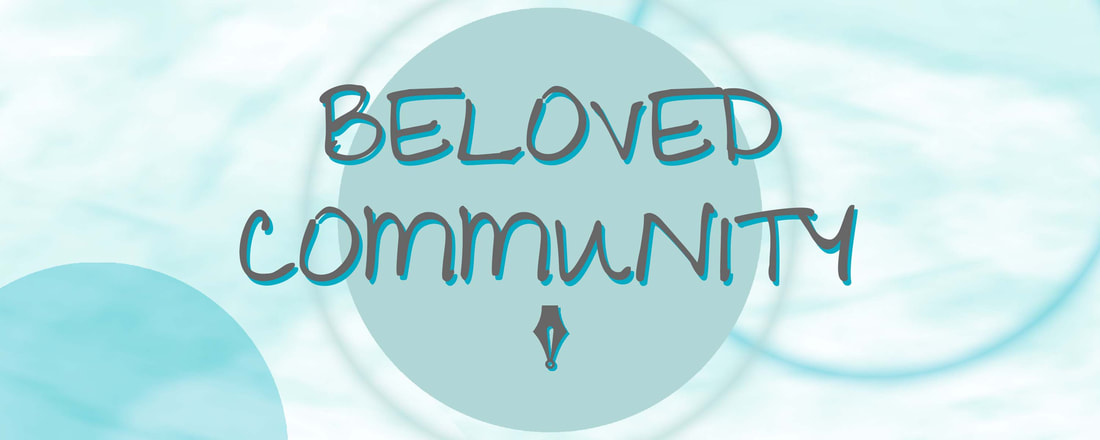
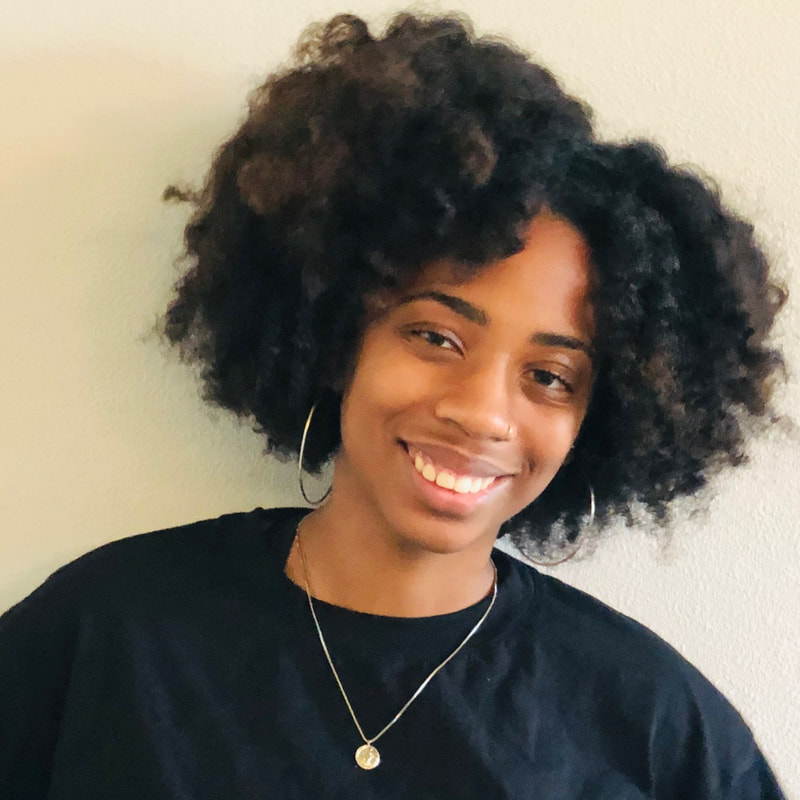
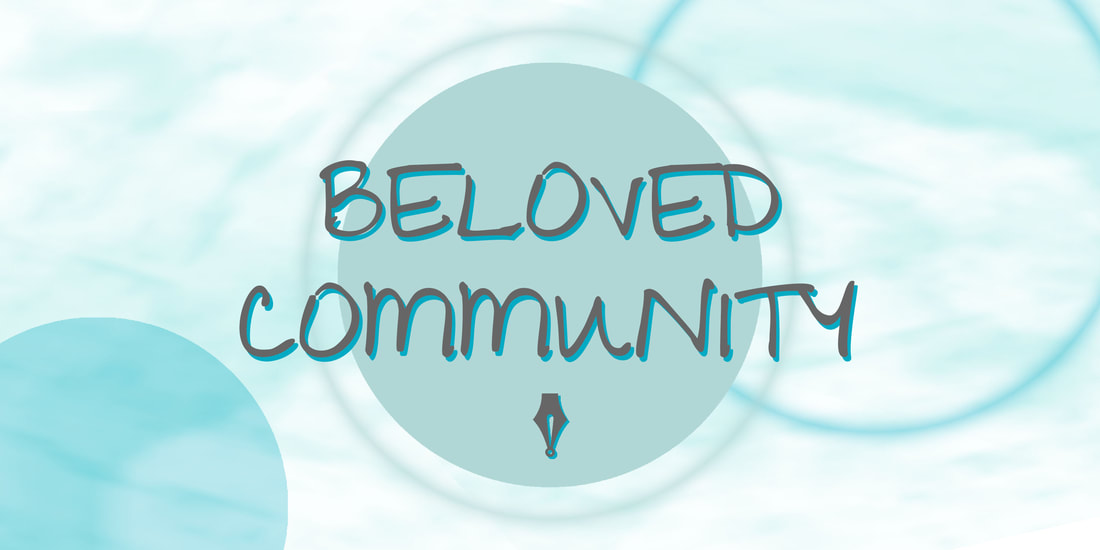
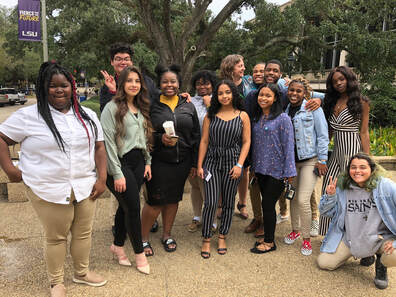
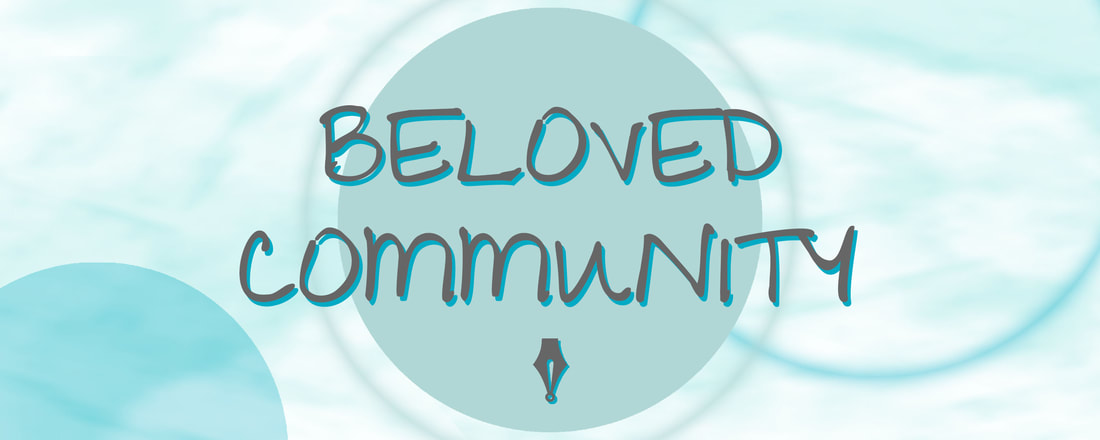
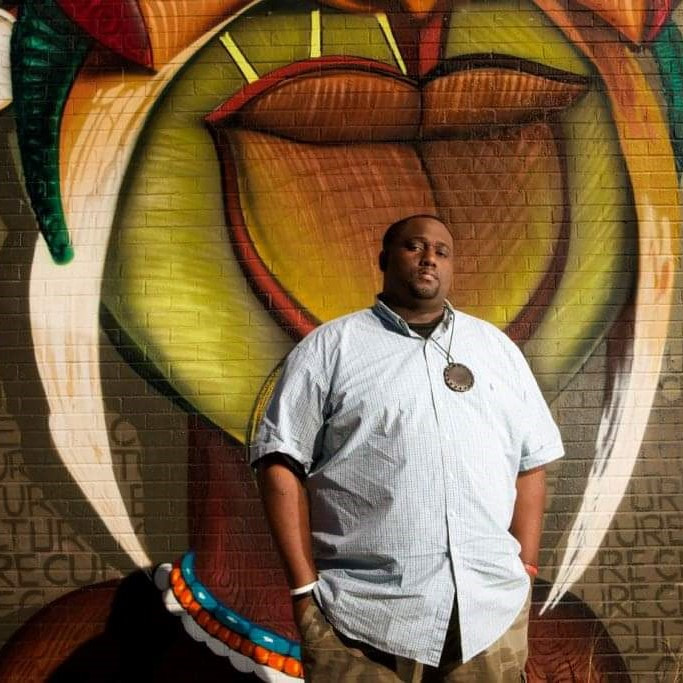
 RSS Feed
RSS Feed
